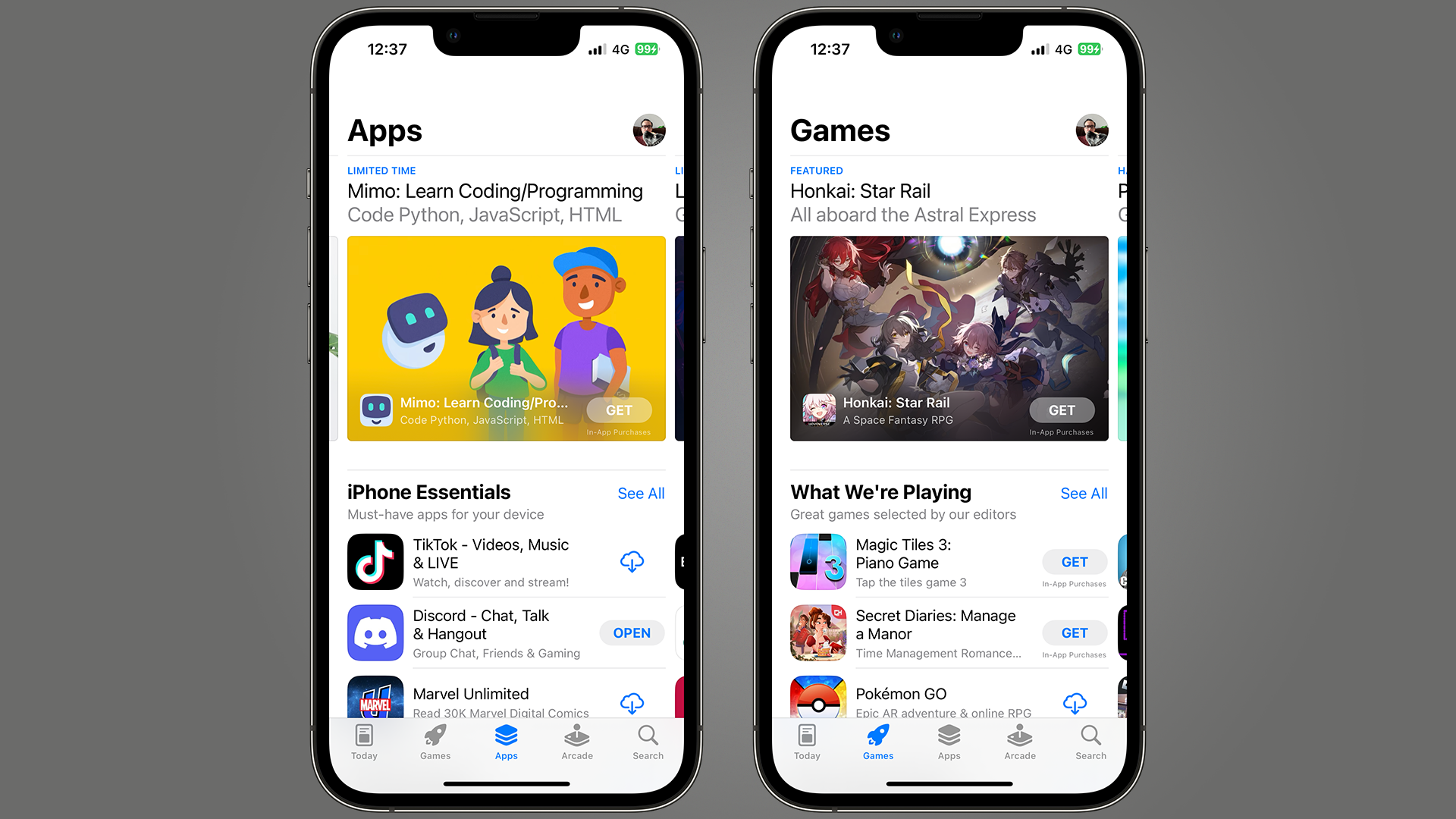Apple blames malware, fraud, and scams for not allowing third-party iPhone app stores outside of the EU and argues 'this is not the safest system for our users'
Apple says it's just protecting its users.

iMore offers spot-on advice and guidance from our team of experts, with decades of Apple device experience to lean on. Learn more with iMore!
You are now subscribed
Your newsletter sign-up was successful
Following the news that Apple is going to allow third-party app stores in the EU following the release of iOS 17.4, developers around the world have been diving into the company's updated developer guidelines and information to see just how things will work. And as suspected, the changes Apple announced today will only apply to those who are in the European Union. If you're outside of an EU member country, it's business as usual and the App Store remains the only way for you to get your apps.
That isn't all that surprising given the fact that Apple is only allowing third-party app stores at the behest of the EU and its Digital Markets Act. A law coming into effect in early March will require that Apple allow people to install iPhone apps outside of the App Store, a move that the company has been fighting for years. Now, Apple has explained to developers exactly why it won't let third-party app stores onto the iPhone globally.
According to Apple, it's all about making sure that users have the best experience and the company doesn't believe that allowing them to install apps from alternative app stores does that. Why? It's all about the bad guys.
It's scary out there
Writing in a support document posted to the company's developer website Apple argues that it "is not offering these changes outside of the EU because this is not the safest system for our users." Apple goes on to say that it has "been very clear about new threats the DMA introduces — including increased risks for malware, fraud and scams, illicit and objectionable content, and reduced ability for Apple to respond to and remove malicious apps."
The explanation continues with Apple saying that it has "always built every innovation on a crucial foundation: the trust of our users."
Under a section titled "What are some of the new risks Apple expects these changes to create for users in the EU?" Apple outlines a litany of problems that it believes allowing third-party app stores could create including:
- Software that includes malware, viruses, and other security threats
- Increased risks of scams, fraud, and abuse
- Distribution of illicit, objectionable, and harmful content
- Apps that misrepresent their functionality
- Apps that unnecessarily access, or even steal, sensitive user data
- Distribution of pirated software
- Reduced ability for Apple to prevent or remove harmful apps, and to support customers encountering issues outside of the App Store
However, Apple has put some steps in place to try and minimize the risk. Requiring that apps be notarized before they can be downloaded, no matter the source is a move that ensures Apple still has control over app availability, for example. It will also allow it to revoke notarization should a problem occur once the app has been downloaded, too.
iMore offers spot-on advice and guidance from our team of experts, with decades of Apple device experience to lean on. Learn more with iMore!
In reality, much of what Apple is doing with iOS 17.4 will see the iPhone mimic the way apps are handled on the Mac.
Apple's stance on sideloading and third-party app stores is now crystal clear, although it was never in any doubt. But it might have an issue further down the line — many global eyes will be on the EU iPhone situation following the release of IOS 17.4 and it's possible any success there could give international lawmakers the impetus to bring laws similar to that of the DMA into play. If that happens Apple might have no choice but to comply with their requirements.
More from iMore

Oliver Haslam has written about Apple and the wider technology business for more than a decade with bylines on How-To Geek, PC Mag, iDownloadBlog, and many more. He has also been published in print for Macworld, including cover stories. At iMore, Oliver is involved in daily news coverage and, not being short of opinions, has been known to 'explain' those thoughts in more detail, too.
Having grown up using PCs and spending far too much money on graphics card and flashy RAM, Oliver switched to the Mac with a G5 iMac and hasn't looked back. Since then he's seen the growth of the smartphone world, backed by iPhone, and new product categories come and go. Current expertise includes iOS, macOS, streaming services, and pretty much anything that has a battery or plugs into a wall. Oliver also covers mobile gaming for iMore, with Apple Arcade a particular focus. He's been gaming since the Atari 2600 days and still struggles to comprehend the fact he can play console quality titles on his pocket computer.
